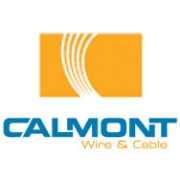
Calmont Wire & Cable
Calmont designs and manufactures custom wire, cable, and shapes for companies requiring custom solutions. Calmont is proud to work with the world’s most innovative and respected companies, like Lapp Tannehill. Anything you can’t readily buy off the shelf, Calmont and Lapp Tannehill can deliver. You can buy exactly what you need in the amount you require, no minimum quantities.
Custom Cable Solutions for Demanding Applications
Since its beginnings in 1958, Calmont has made it their mission to become specialists at developing custom cable solutions for companies in medical, robotics, aerospace, military, and sensor industries, among many others. For over half a century, Calmont has been designing and manufacturing products for applications with demanding requirements including ultra-flexibility, high voltage, and high temperature.
Why would I need a custom cable?
Key Industries for Calmont Wire & Cable
Types of Conductors
There are a plethora of options used to transmit electrical energy, but those most frequently specified are copper, copper-covered steel, high strength copper alloys, and aluminum. For more unusual applications, conductors are fabricated from pure nickel, pure silver, copper-covered aluminum, and a host of metals, metal alloys, and metal combinations.
Material Capabilities
- Copper – Copper the most universally used conductor material. Among its physical properties are high electrical and thermal conductivity, malleability, solderability, high melting point, high resistance to corrosion, wear, and fatigue.
- Copper-covered steel – Copper-covered steel unites the conductivity and corrosion protection of copper with the durability of steel. Three types are presently available: molten welding, a copper layer is electroplated over a steel rod, and one in which copper and steel are metallurgically bonded.
- High Strength Alloys – Though more expensive than copper-covered steel wires, copper alloy conductors are specified because they permit significant size and/or weight reductions (important in computer and aerospace applications). They offer high breaking strength and greater flex life with only a small increase in DC resistance. Cadmium-chromium copper, cadmium copper, chromium copper, and zirconium copper are most frequently used.
- Stainless Steel – Stainless steel is used for medical lead wires and cables. Stainless steel has poor conductivity compared to copper and therefore may have to be gold plated to improve the conductivity.
Conductor Coatings
- Bare Copper – Bare copper slowly combines with oxygen at room temperature to form copper oxide. Oxide film is a poor transmitter of electricity and must be either removed or restricted from forming in order to assure the reliability of connections. Raising the temperature accelerates this reaction, and at about 180°C and higher bright copper wire turns black in just a few minutes. This is usually accomplished through coating the copper wire with another metal which oxidizes more slowly at operating and processing temperatures. Thus, a coating is sometimes used to facilitate termination (soldering); sometimes as a processing aid (preventing oxidation of the copper at PTFE® TFE extrusion temperatures); and sometimes to offer a lower-resistance connection (“Wire-Wrap” termination). Bare copper is satisfactory at temperatures up to about 100°C.
- Tinned Copper – Tinned copper conductors are a soldering aid and are usually specified where this terminating process is to be used. Tinned copper conductors are slightly more expensive than bare copper wires due to their being much more suitable for conductors continually exposed to temperatures not exceeding 150°C. However, using tinned copper more than offset the additional expense, especially when manual twisting and solder dipping of the stripped lead is required.
- Silver Coated Copper – Silver plated copper is made by electro-plating pure silver on 18 AWG wire which then is cold drawn to size and finally strengthened. The minimum silver thickness is 40 micro-inches. Silver-coated conductors are recommended for wires operating from above 150°C to about 200°C and in high-frequency applications where, because of skin effect, higher conductivity of silver is desirable, though it is higher in cost than tinned copper. They are readily wet by solder, permitting rapid soldering with hand irons. Conductor flex life may be shortened if solder wicking under the insulation is not restricted or controlled. Silver-coated copper will oxidize after a few hundred hours at 250°C.
- Nickel Coated Copper – Nickel-plated conductor (50 micro-inches minimum nickel thickness) is recommended for PTFE® TFE hook-up wire operating for lengthened periods at temperatures ranging from 200° to 260°C, and where silver coating is questionable because of possible solder wicking. Ordinary soft solder does not wet nickel as readily as it does tin or silver. It adheres well enough to make a good termination, but will not wick into the stranded conductor beyond the joint, thereby leaving flexibility uninjured. Connections exposed to temperatures above the melting point of soft solder require special soldering techniques. The term” nickel clad” refers to a much thicker coating – 10% to 30% of the radius of the strand.
Customize your Calmont Wire and Cable Solution with Lapp Tannehill
The experts at Lapp Tannehill can help you narrow down your Calmont Wire and Cable options plus provide details on our numerous value-added services, such as custom labeling.
If you are interested in custom cable options with Calmont, please complete our custom cable form or call us for additional assistance.

